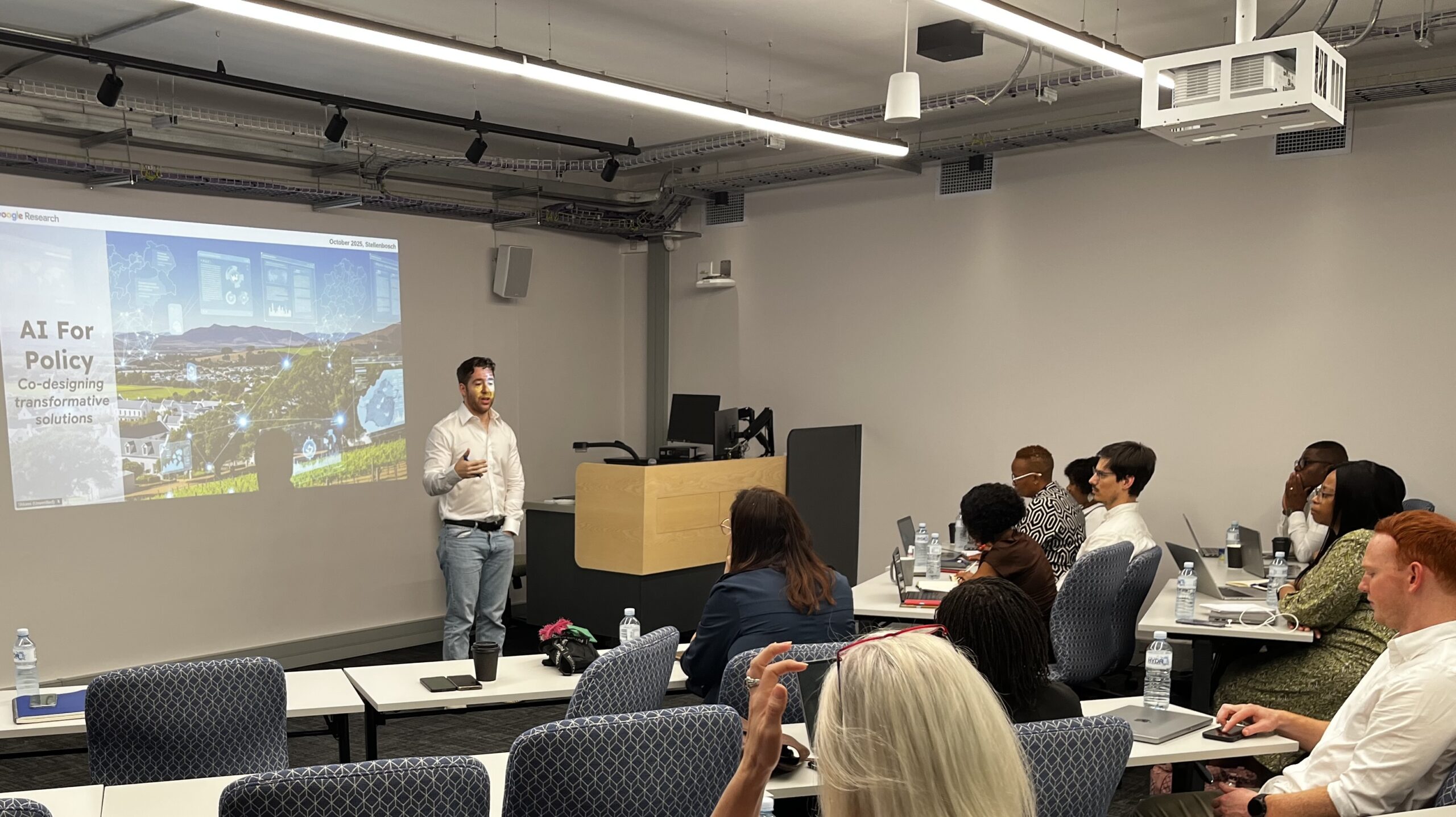Artificial intelligence (AI) is changing how societies think, act and make decisions, and now it is prompting fresh ideas about how governments can work. Stellenbosch University’s Policy Innovation Lab recently hosted a workshop with Google and the Policy and Research Services branch in the Presidency of South Africa to explore how AI could transform policymaking.
Held at the School for Data Science and Computational Thinking, the workshop, titled AI for Policy: Co-designing Transformative Solutions, brought together researchers, policymakers and experts from Google to examine how AI can be used responsibly to strengthen evidence-based governance.
Exploring transformative solutions
The Policy Innovation Lab has been working closely with the Presidency to explore how AI can improve policymaking. By involving Google, the workshop added the perspective of experts on the newest AI technologies and applications.
The AI for Policy workshop builds on the Lab’s AI for Policy platform, designed to experiment with AI for strengthened policymaking.
“We were delighted to bring policymakers and technology experts into the same room to think out of the box,” said Professor Willem Fourie, who leads the Policy Innovation Lab. “We wanted to move beyond business as usual and imagine how AI can transform policymaking, ultimately to dramatically improve the lives of ordinary South Africans.”
Discussions centred on how AI can assist policymakers by analysing data, detecting trends and summarising information quickly and accurately. Google Research shared examples of tools being used to interpret large collections of policy documents and datasets to identify emerging themes.
Keeping humans at the core of decision-making
Throughout the workshop, participants emphasised that human judgment must remain central. Professor Fourie highlighted the importance of the responsible and human-centred use of AI tools: “AI tools should assist and not replace human decision-making in all phases of the policymaking cycle.”
Data privacy and security were also discussed as priorities in developing AI for the public sector.
By the close of the workshop, participants had identified several areas for continued collaboration, including pilot projects that test AI tools in policymaking.
